Independent or Alone?
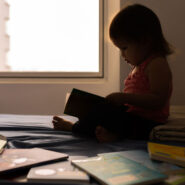
I used to be embarrassed about receiving help until I discovered the reason why.
In a previous post, Help Is All Around, I talked about my embarrassment over receiving EMS services for a false-alarm. My embarrassment made total sense when I uncovered a belief that was telling me: “being helped = being saved = incompetent.”
Incompetent was definitely not OK with me!
That belief evaporated very quickly after writing that post simply by using SAY WHAT YOU SEE® with myself for some intense self-coaching:
“You think being helped means you are incompetent. You are sure of it!”
That helped me see the belief as a thought I had, not an absolute truth. As I mentioned in my post, the help professionals give really is a statement about them and their commitment to service, and not about me. They would do it if I were incompetent or not.
That breakthrough changed my experience of professional help from embarrassment into gratitude.
I know it’s true because a couple of years later I broke my foot. Even though it was the result of a stupid accident (walking while texting), instead of embarrassing, I found the whole thing to be fascinating, like some kind of adventure. It was the first time I had ever had a cast, and I got to use a knee-walker.
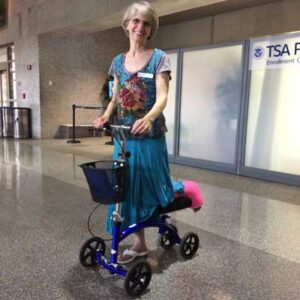
If you ever have a foot injury, I recommend it highly! Crutches are awkward, scary, and hurt your hands and arms, while a knee-walker is fun! It’s like a friction-less scooter—you tap your good foot on the floor, and it just rolls. My daughters even took turns with me using it in the airport on the smooth terrazzo floors. No embarrassment there!
But, as is the nature of personal growth, there was more to be uncovered about my beliefs about being helped.
Breaking up the belief string: “being helped = being saved = incompetent,” led to another realization that took me back to my toddler years and a closely related, but separate belief. When I was little I’d apparently gotten the idea that I couldn’t depend on others to “take care of” me, so I had to do it myself. Pretty scary thought for a toddler, which is why it lodged so deeply in my brain. It was a survival story.
To explain where that belief came from, when my brother was born I was 18 MO and my older sister was 3 YO. If you have children who are closely spaced like that, you’ll understand why my previously very attentive mom suddenly needed me to be more independent. As many toddlers do, I took that to mean “all or nothing.” I had been taken care of as the “baby,” now I wasn’t. I was on my own and felt very alone. (No surprise the same thing played out with my oldest daughter when her sister was born 18 mo later.)
As a toddler, this fear of being on my own was very real to me at the time, because toddlers have what I call “once is always” thinking. Something happens once, and they decide that’s how it is—always. It might look to you like being stubborn, but it’s way bigger than that. It’s your toddler trying to make sense of their world.
Contrast plays a big role in making sense of the world because it helps toddlers tell things apart. Their use of contrast creates on/off switches that turn everything into “either/or” situations, even though many things may be happening concurrently like having mixed feelings, loving more than one person at a time, or having help available and being on your own.
So whenever I look into a belief from early childhood, I look for where things look like an “either/or” and check to see if they might actually be an “and.”
In the case of “being taken care of,” when I became aware that I held this belief: “I’m either being taken care of OR taking care of myself,” lots of things clicked into place. My resistance to being helped made even more sense when I wrote it as a collapse:
“being taken care of = NOT taking care of myself.”
In that belief the “either/or” meant that to be taken care of I would have to GIVE UP taking care of myself. That would make me “dependent” on others, which I’d taken off the table back when my brother was born. My subconscious toddler-self wasn’t going to let the proverbial rug get pulled out from under me again. Thank you little Sandy, because as a result I became a highly competent and capable adult who can take care of myself.
Knowing that I’m actually fine on my own and that being helped cannot take away my competence or threaten my survival, I was open to the next step which was simply popping in the AND instead of the OR, which produced this new statement that I now recognize as the truth:
I’m always being taken care of AND taking care of myself.
Nothing given up or lost, but so much gained…which is always the case with breakthroughs!
And because beliefs become generalized (beliefs that begin about ourselves become our truths about humanity in general), this breakthrough has had far-reaching benefits. One is in my ability to take care of others AND let them take care of themselves…at the same time!
Knowing that taking care of them doesn’t stop them from taking care of themselves (or make them incompetent as I previously believed), I no longer feel torn between the two when I’m training coaches, coaching a parent, or coaching a child who is having a meltdown or a tantrum. I can move comfortably between validating their feelings, wants, and wishes AND watching them meet their own needs without depending solely on my Language of Listening® coaching skills to keep me non-reactive. The lightness I feel now tells me that I actually am non-reactive and at peace.
2 Comments


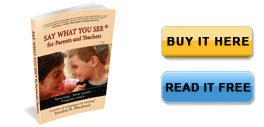
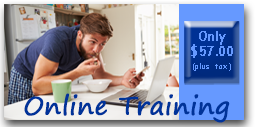
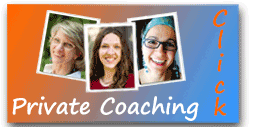

oh sandy! what a lovely article – I loved every word! thankyou for sending it to me – I felt so nostalgic for the time we were together when I read it – take care – so much love and prayers, seema
Awww…thank you, Seema. Your visit was quite a treat! No wonder this post brought it up for you since that photo was taken at the airport when I was waiting for you to arrive. Fond memories for me, too. <3 Sandy